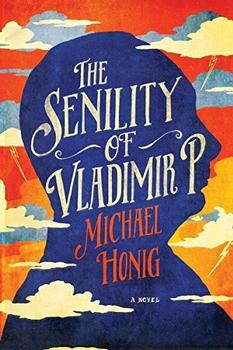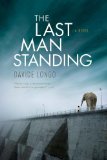Summary | Excerpt | Reviews | Beyond the book | Read-Alikes | Genres & Themes | Author Bio

I have a confession to make. I am in love with China Miéville's brain. I think his writing is brilliant, unique, and thought-provoking to the millionth degree. He treats the English language as his tool, his toy, and his landscape, and Embassytown is a perfect example of how much he can accomplish in one book.
Avice Benner Cho grows up in a world where humans barely have an outpost, and the native population can barely communicate with them. The Ariekei's nature and language are such that it takes humans more than a century to be able to speak with them, though understanding is still limited. And while on one level this story is like a Star Trek Prime Directive fiasco (and worse than anything Kirk or Picard had to deal with), the science fiction adventure element is merely the surface. Miéville creates a world in which the characters play out the parts of a linguistics debate while challenging the social interactions that lead to war. Oh yeah - and meanwhile, humans have the ability to travel between planets using an alternate reality where movement is achieved by beings who have learned how to think about moving in a particular way.
Embassytown is roiling with undercurrents on the nature of language. The Ariekei think their human ambassadors (specially bred and trained to communicate with them) are amazing for being able to lie. They hold festivals so the Ariekei can revel in the lying and try to learn how to do it. They use humans to 'make similes' so they can talk about things that don't exist. If you're not an English geek like me, that might not sound interesting, but it's all dressed up in crazy aliens, even crazier people, and the messes that people always make when they let petty selfishness get in the way of the public good. There are characters to love, mysteries to solve and lives to save - all while Miéville ruminates on the duality of language and how miraculous it is that people ever understand what they tell each other.
I don't recommend starting this book while half-asleep. You will retain nothing and have to start over. Maybe there are PhDs in physics just nodding along with Miéville's futuristic creations, but for the rest of us, he is not just telling a story, he's inventing a scientific reality to populate and play with. He makes you dive right in, and you better hope you can learn to swim in his pool.
All of the Miéville books I have read feature the exploration of social structures, an impressive facility with language, and incredible narrative depth. Embassytown is no exception - you won't be forgetting this one. While I don't think this book is for everyone, those who enjoy a large dose of brain food with their entertainment will be right at home.
![]() This review was originally published in The BookBrowse Review in July 2011, and has been updated for the
February 2012 edition.
Click here to go to this issue.
This review was originally published in The BookBrowse Review in July 2011, and has been updated for the
February 2012 edition.
Click here to go to this issue.

If you liked Embassytown, try these:

by Michael Honig
Published 2017
A biting satire of a particular despot and a deeply humane allegory of the fragility of goodness and the contagion of unchecked power.

by Davide Longo
Published 2014
Davide Longo's Last Man Standing is a vivid description of one man's struggle in a post-apocalyptic world to protect his loved ones even as societal norms give way to barbarism and cruelty.
Your guide toexceptional books
BookBrowse seeks out and recommends the best in contemporary fiction and nonfiction—books that not only engage and entertain but also deepen our understanding of ourselves and the world around us.